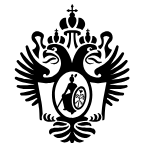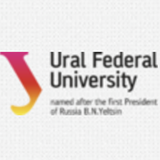Introduction
The Moscow State University of Civil Engineering (MGSU) is one of the oldest technical colleges of higher education in the Russian Federation. It has a profound academic background and outstanding teaching and research achievements in the fields of architecture and civil engineering, and has trained a large number of outstanding professionals for Russia and the world.
Overview
Student size: The school has a total of 9,754 students, including 7,413 undergraduates and 2,341 postgraduates.
Faculty: It has 620 academic staff with rich experience and high professional quality, and can provide students with high-quality teaching and guidance.
History and establishment time
The school was founded in 1921. Its predecessor was the Moscow Civil Engineering Secondary Vocational School established in 1907. In 1935, the school was named after V.V. Kuibyshev and it was not until 1993 that the school was renamed the Moscow Civil Engineering Secondary Vocational School. In 2000, it was renamed Moscow State University of Civil Engineering.
School Strength
Teaching Achievements: The school has trained many professionals with outstanding achievements in the field of civil engineering. They play an important role in the fields of construction engineering and infrastructure construction in Russia and even the world. The employment rate of graduates is high and the employment quality is good, which is widely praised by employers.
Scientific research strength: As a national research university, the school has carried out extensive and in-depth scientific research work in the field of civil engineering. It has a number of modern research laboratories and has undertaken a large number of national and international scientific research projects. It has made important contributions to promoting scientific and technological progress in the field of civil engineering. Its scientific research results have been widely used in building structures, water conservancy projects, transportation engineering, etc.
International cooperation: The school has rich international cooperation experience with scientific education centers from 30 countries. It is a member of organizations such as the International Department Association of Technical Universities in Eastern and Central Europe and the Mongolian Moscow University Alliance. It has also participated in the implementation of international projects such as the European Association of Civil Engineering Schools. It has established cooperative relations with many foreign universities and research institutions, and carried out student exchanges, teacher visits, cooperative research and other activities, providing students with a broad international exchange platform.
Institutional nature
Public university.
Educational philosophy
Focus on the combination of theory and practice, emphasize the cultivation of students' innovative consciousness and practical ability, and is committed to providing students with a broad-based education and professional training so that graduates can quickly adapt to professional work in the field of civil engineering and succeed in their careers.
Key laboratories and disciplines
Key laboratories: The school has 30 Scientific laboratories, covering multiple fields such as structural engineering, geological engineering, transportation engineering, water conservancy engineering, and construction engineering, provide advanced experimental equipment and research platforms for scientific research, such as building structure laboratories and water conservancy engineering laboratories, which can carry out various simulation experiments and performance tests, and provide strong support for discipline development and scientific research innovation.
Key disciplines: Industrial and civil construction, water conservancy and energy construction, architecture and urban planning, engineering environment construction and mechanization, architectural digital technology and modeling, etc. are the key disciplines of the school, with high level and influence in teaching and scientific research, and some of them are in a leading position in Russia.
Faculty
The school has 7 research institutes, including the School of Industrial and Civil Engineering, the Institute of Architecture and Urban Planning, the Institute of Water Conservancy and Energy Construction, the Institute of Engineering Environment Construction and Mechanization, the Institute of Economic Management and Communication in the Field of Construction and Real Estate, the Institute of Architectural Digital Technology and Modeling, the School of Physical Culture and Sports, and the School of Distance Education, etc., providing students with systematic professional education and diversified learning options.
Ranking
Ranked 201-210 in the 2022 QS Emerging Europe and Central Asia University Rankings =1.
Expenses
Take the master's degree as an example. The tuition fees for majors such as Engineering and Technology, Development of Investment and Construction Activities, Building Environment Engineering, Mathematics and Computer Modeling in Civil Engineering are 350,000 rubles/year.
Campus
Teaching facilities: The university's faculties are located in buildings with a total area of 269,500 square meters and an area of 117.9 hectares. In September 2008, classes began in a new educational and laboratory complex with an area of more than 11,500 square meters. The school's library has a rich collection of books, providing rich material support for students' study and research.
Living facilities: There are four student dormitories on campus, providing convenient accommodation conditions for students. In addition, the school is surrounded by convenient transportation and rich cultural life, which is conducive to the all-round development of students.
-

Peter the Great St.Petersburg Polytechnic University
-

Moscow State University M. V. Lomonosov
-

Bauman Moscow State Technical University
-

St. Petersburg State University
-

Tomsk State University
-

Peoples' Friendship University of Russia
-

Don State Technical University
-

Ural Federal University
-

Moscow Institute of Physics and Technology
-

Kazan Federal University
-

Mesoamerican University
-

Istmo University
-

Mariano Galvez University of Guatemala
-

Regional University of Guatemala
-

Galileo University
-

Francisco Marroquín University
-

Rafael Landívar University
-

University of the Valley of Guatemala
-

University of San Carlos of Guatemala
-

Technological Institute of Tlaxcala Plateau
-

Golfo University
-

Technological University of South Sonora
-

Technological University of Huejotzingo
-

Tizimín Institute of Technology
-

Chilpancingo Institute of Technology

